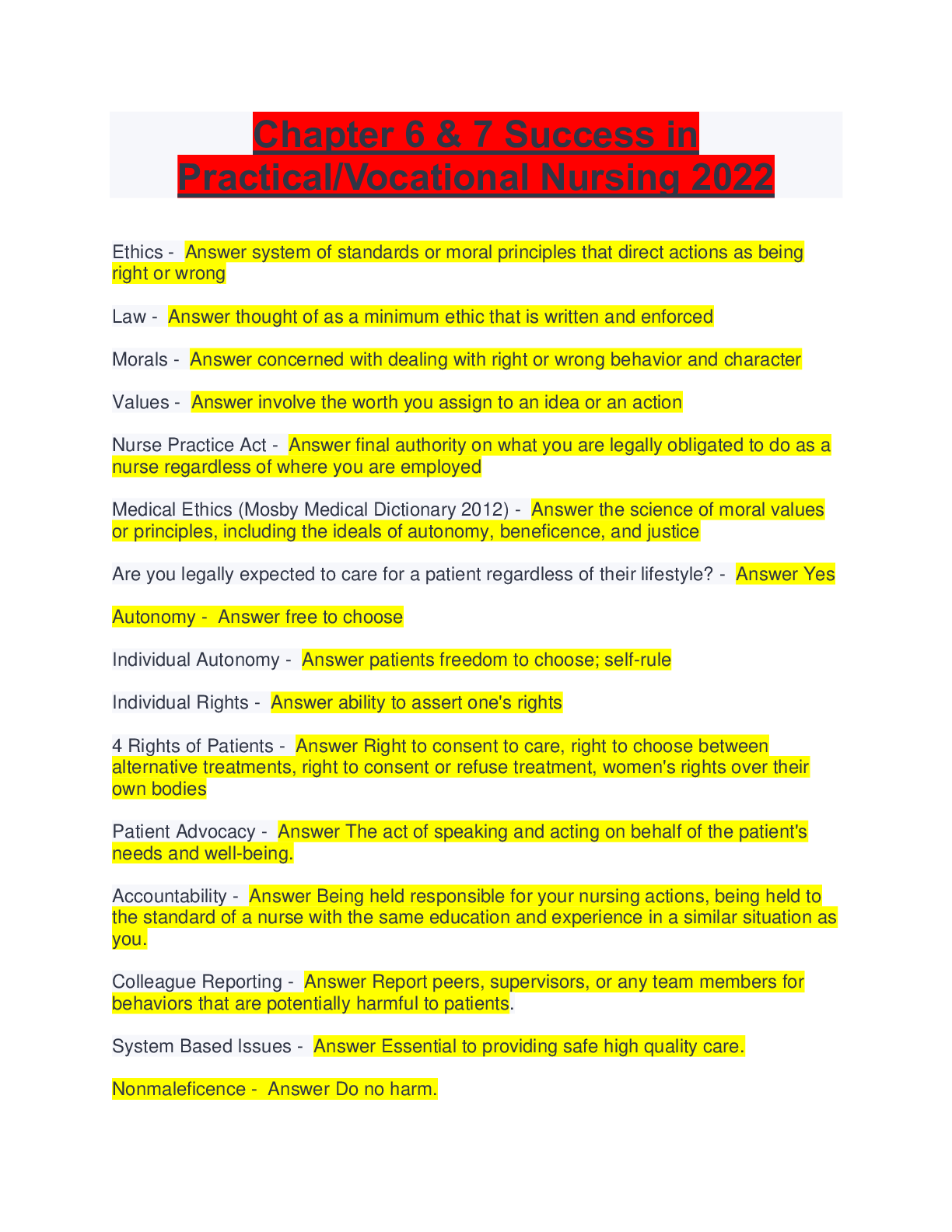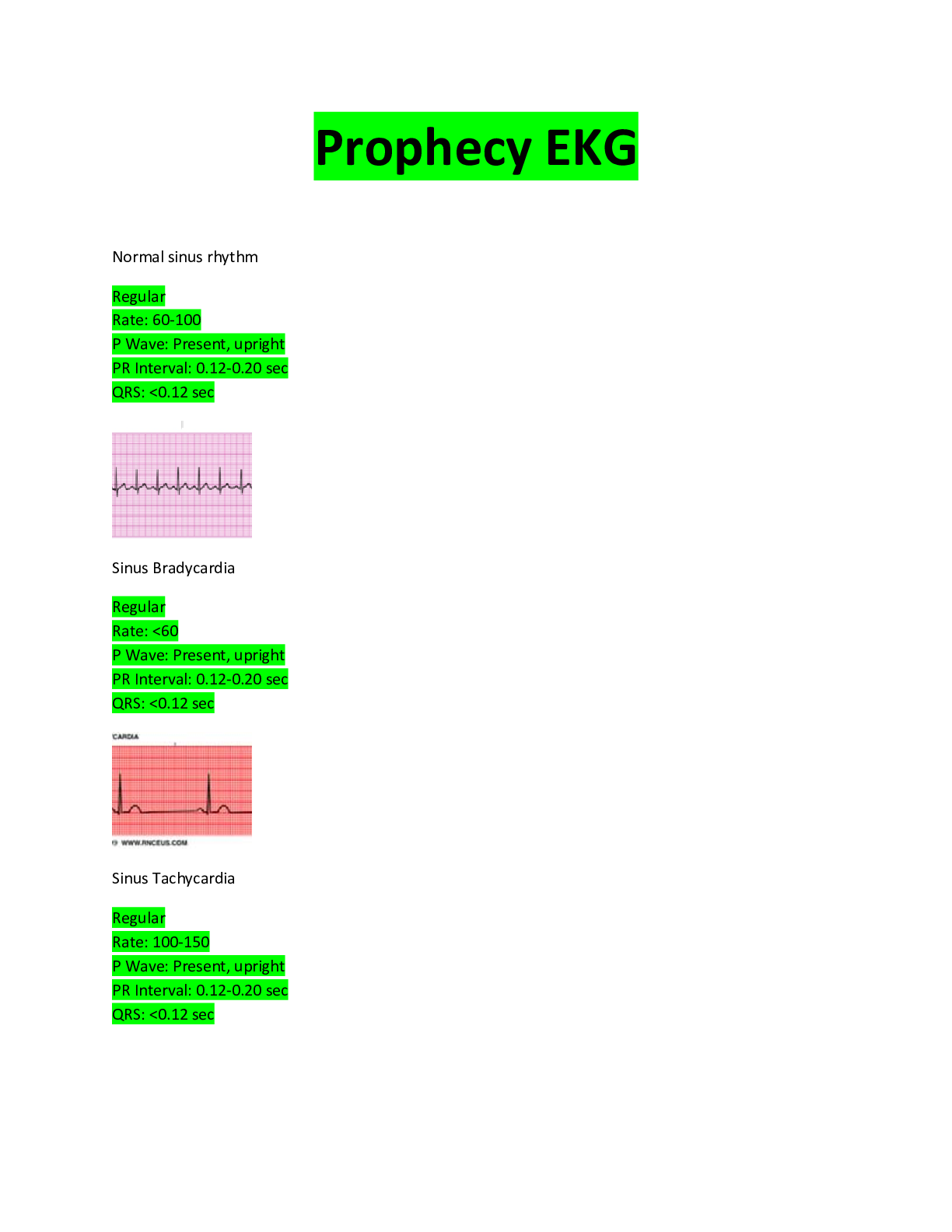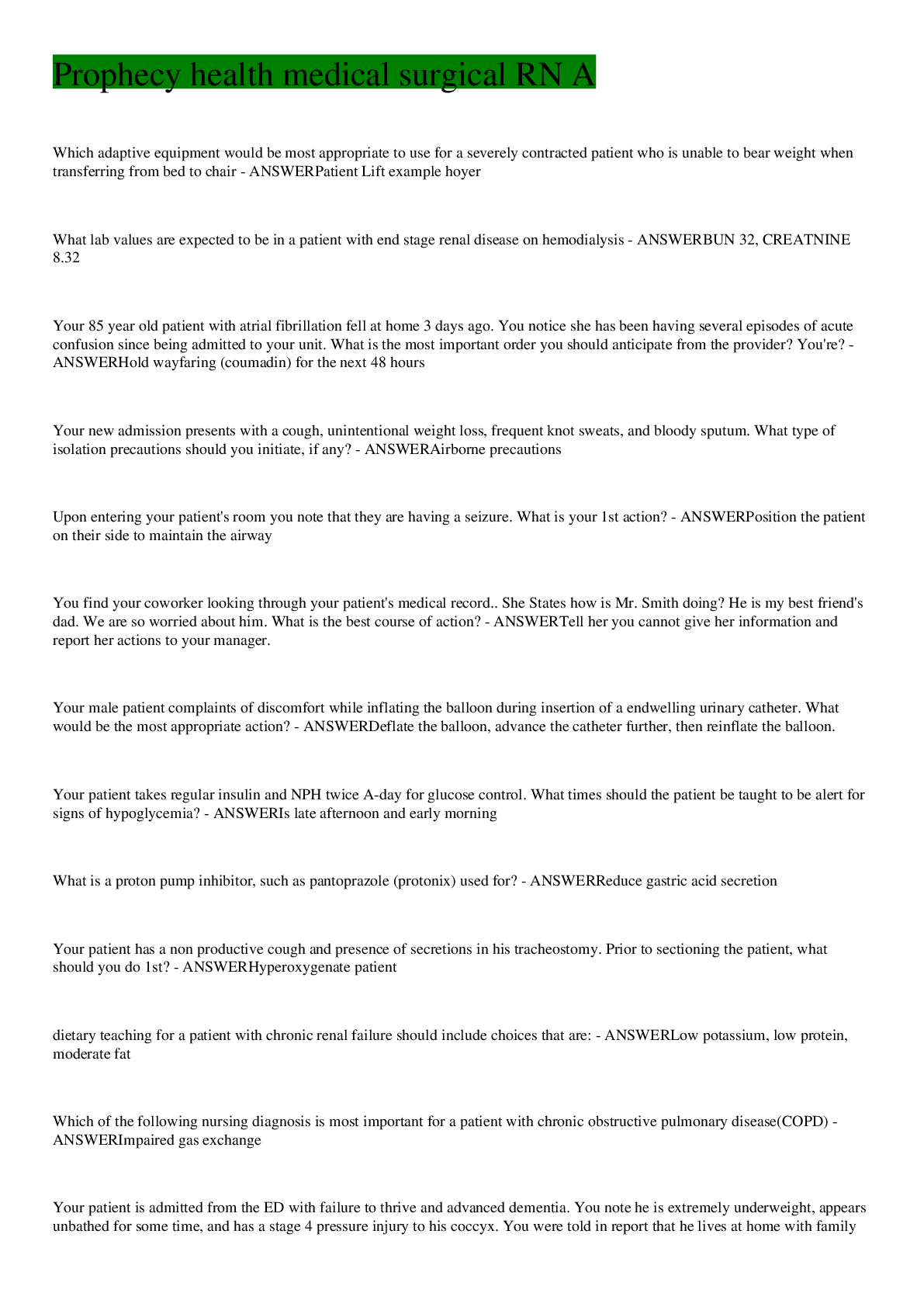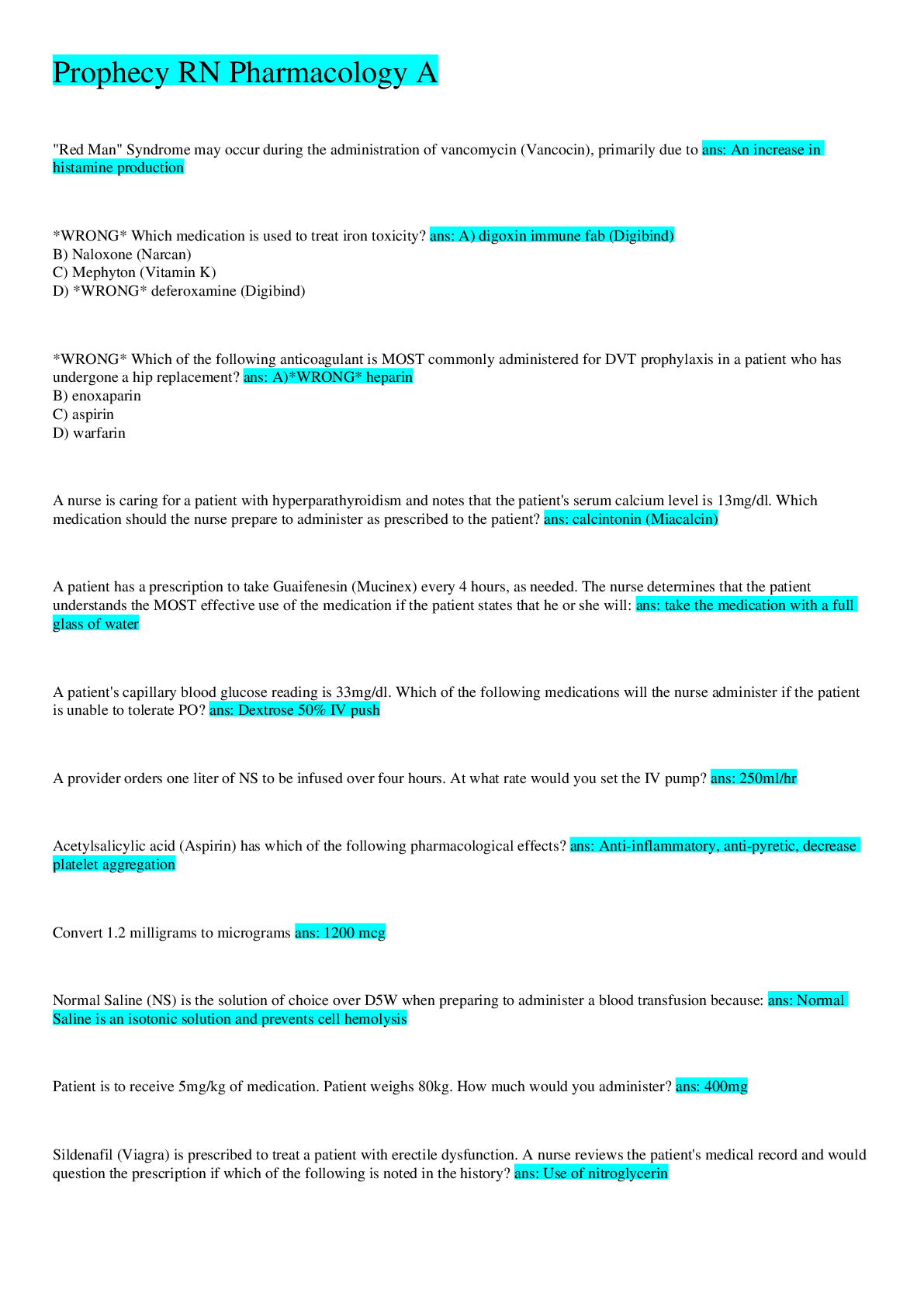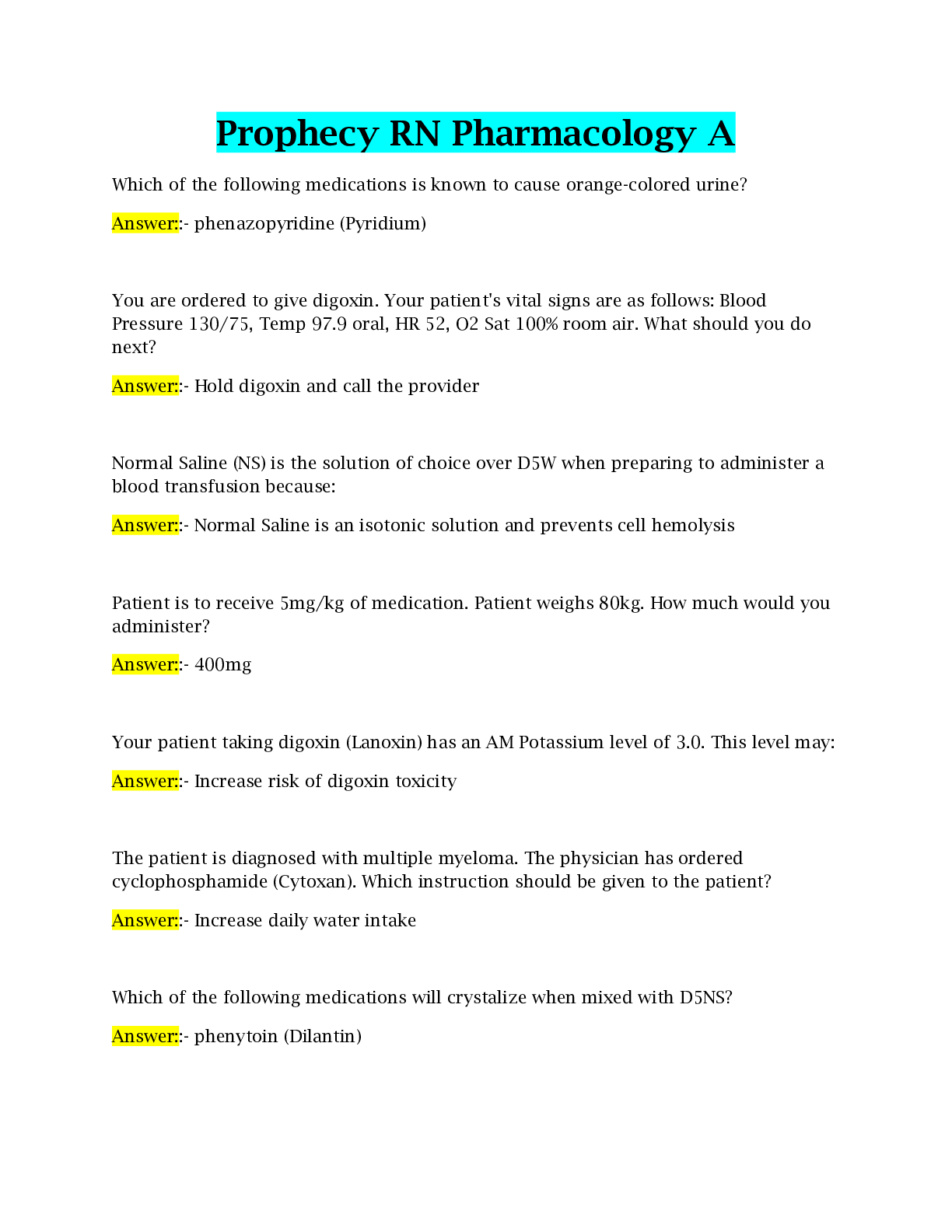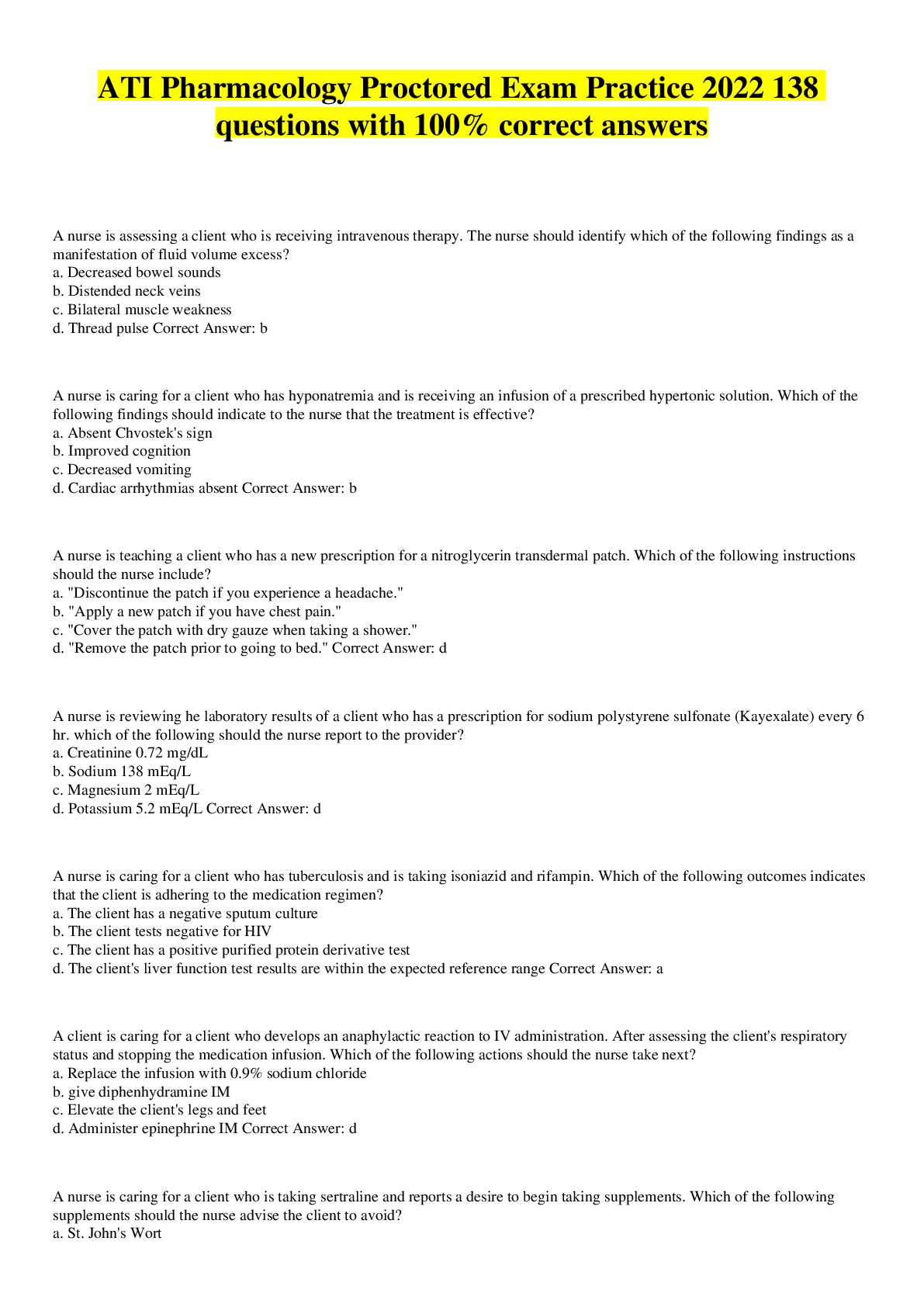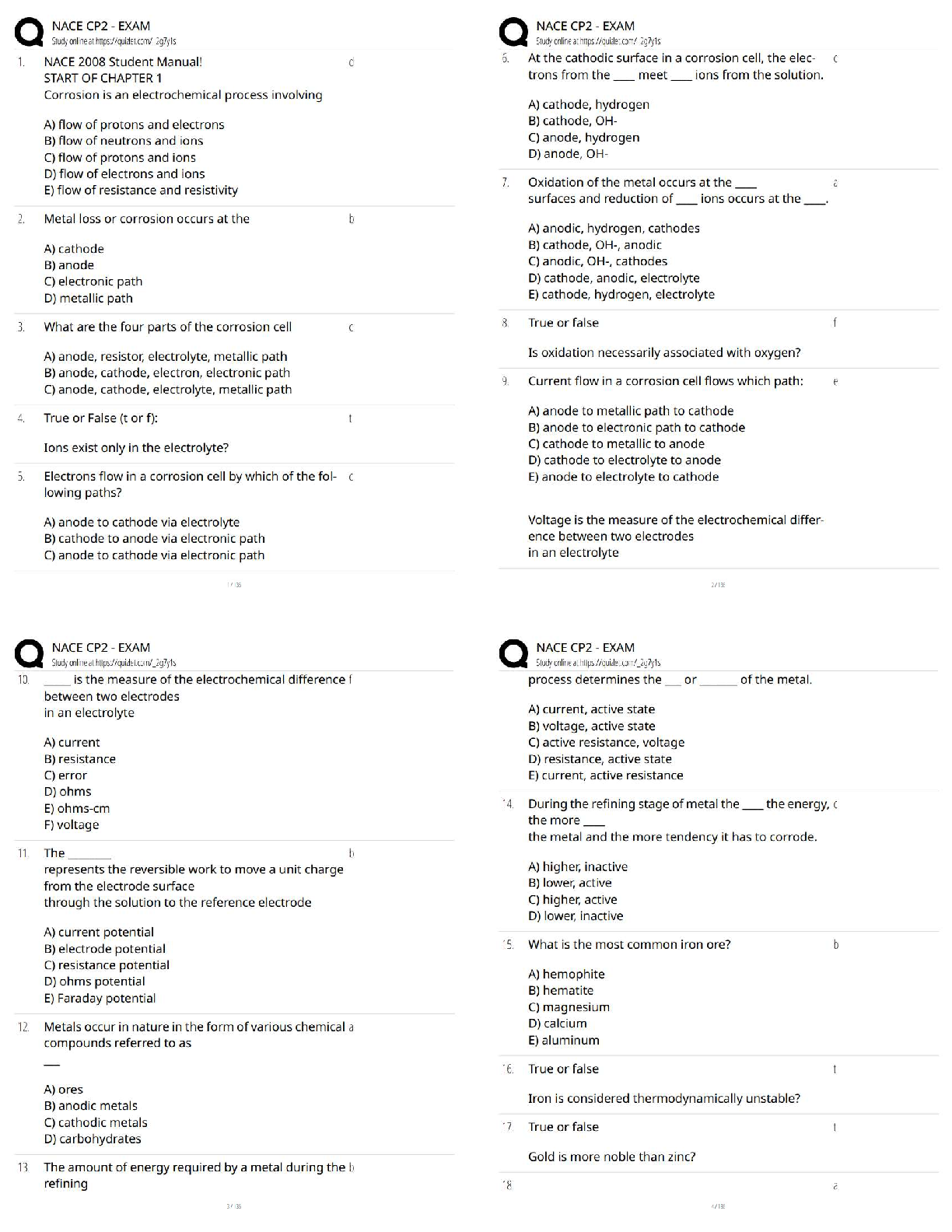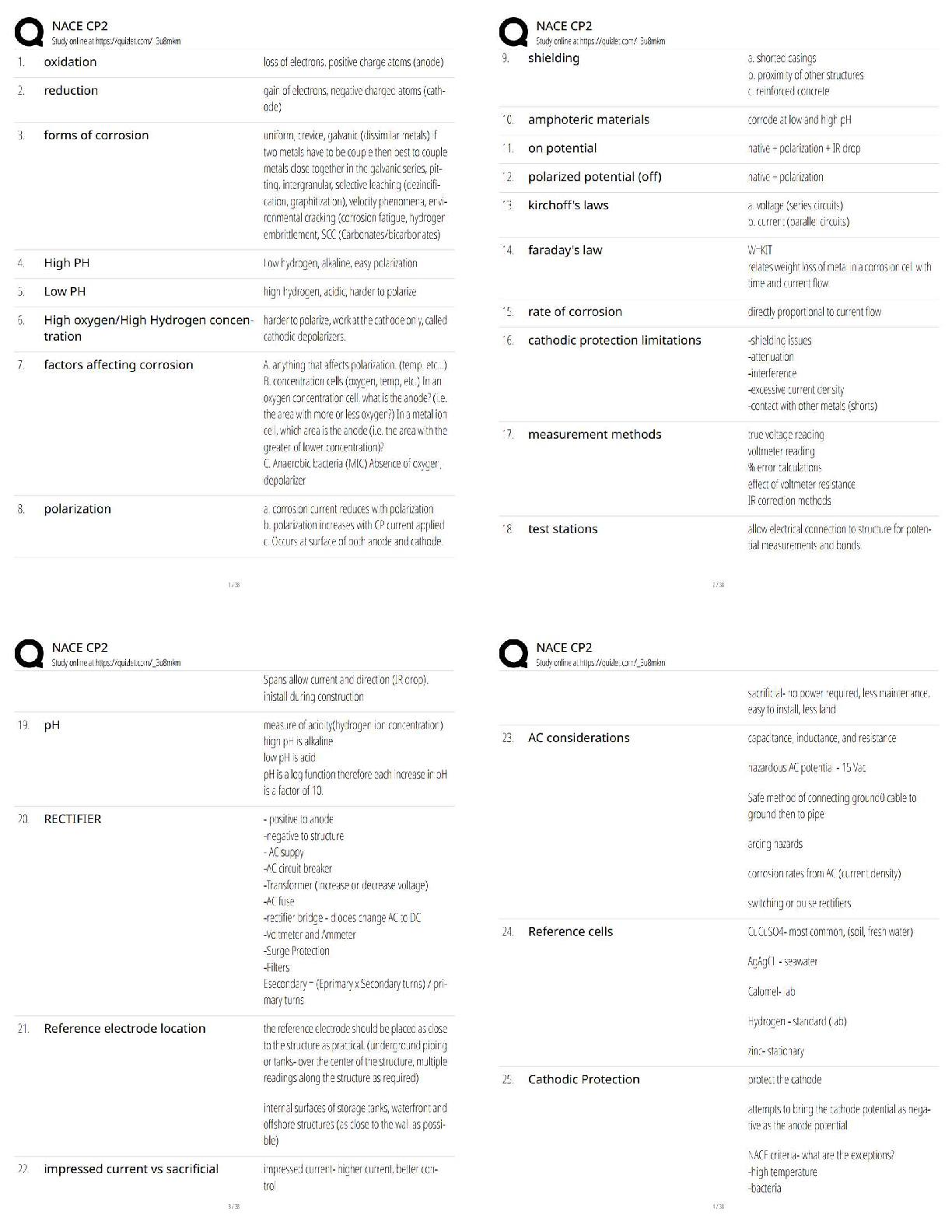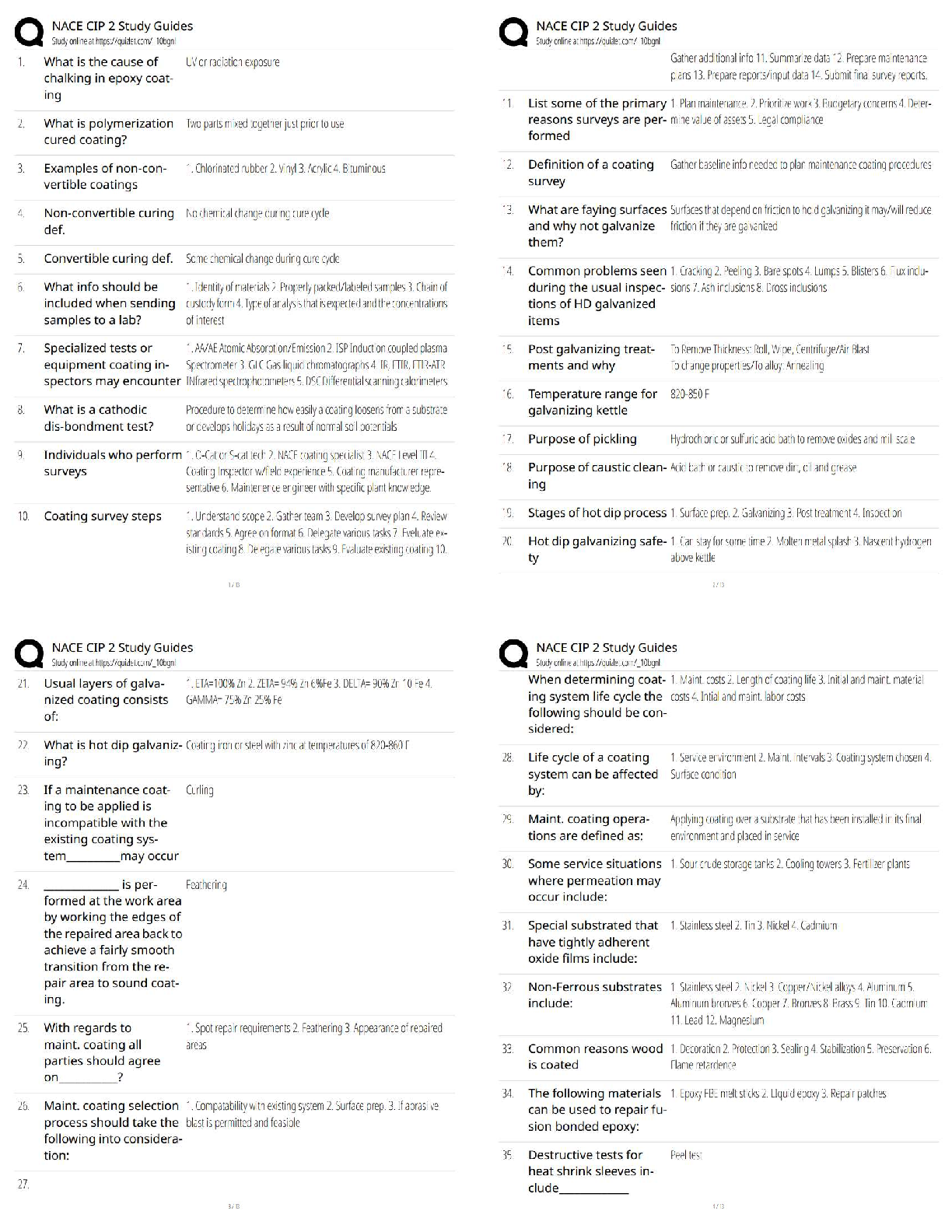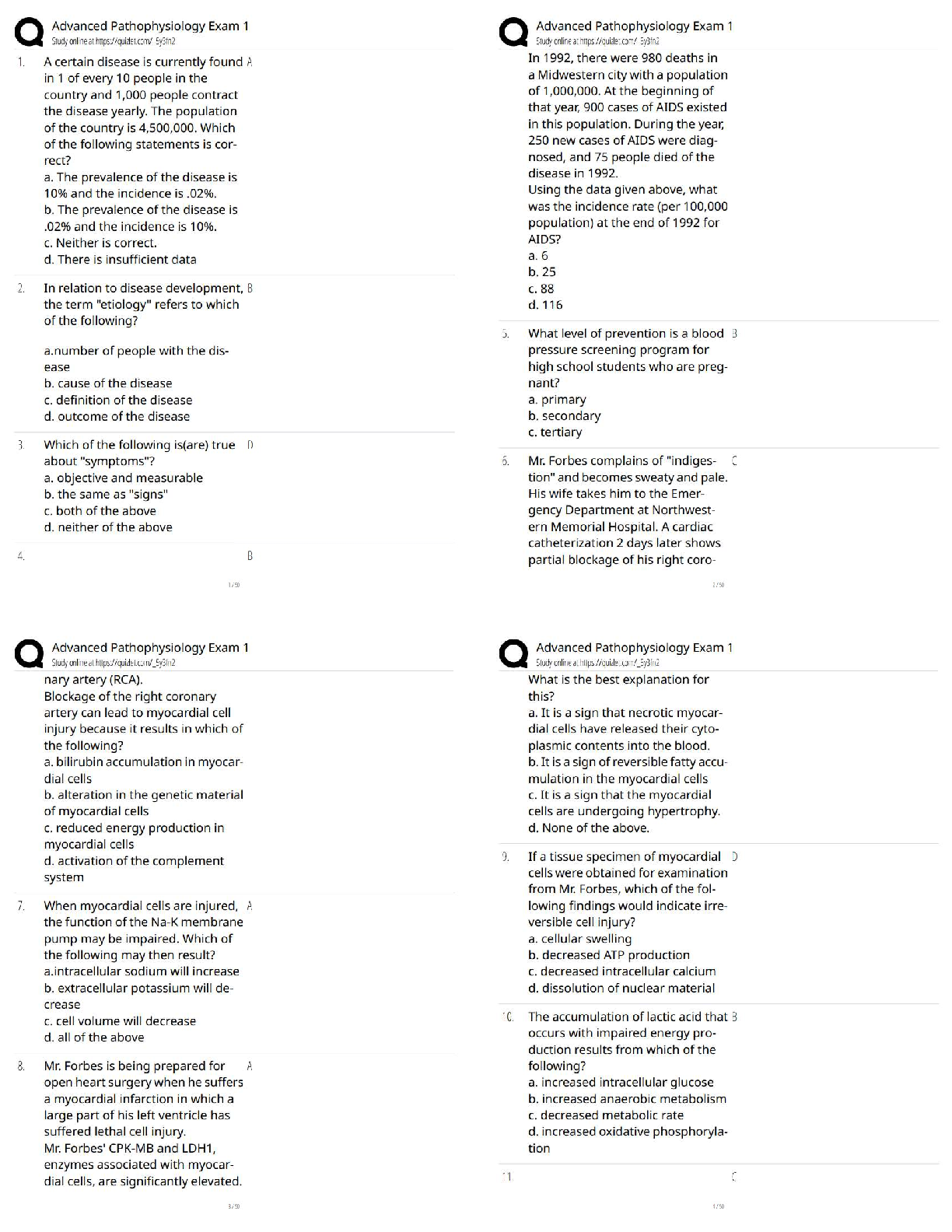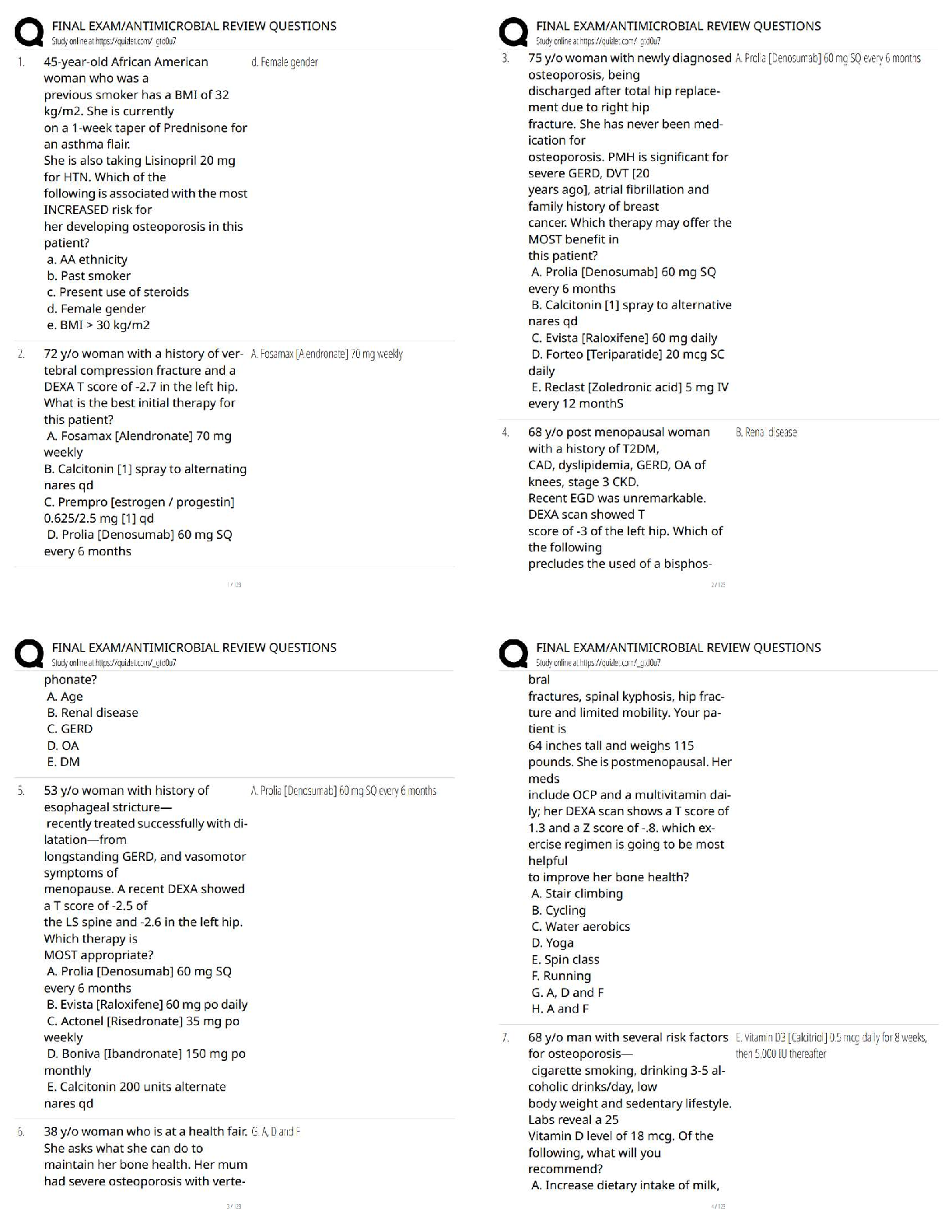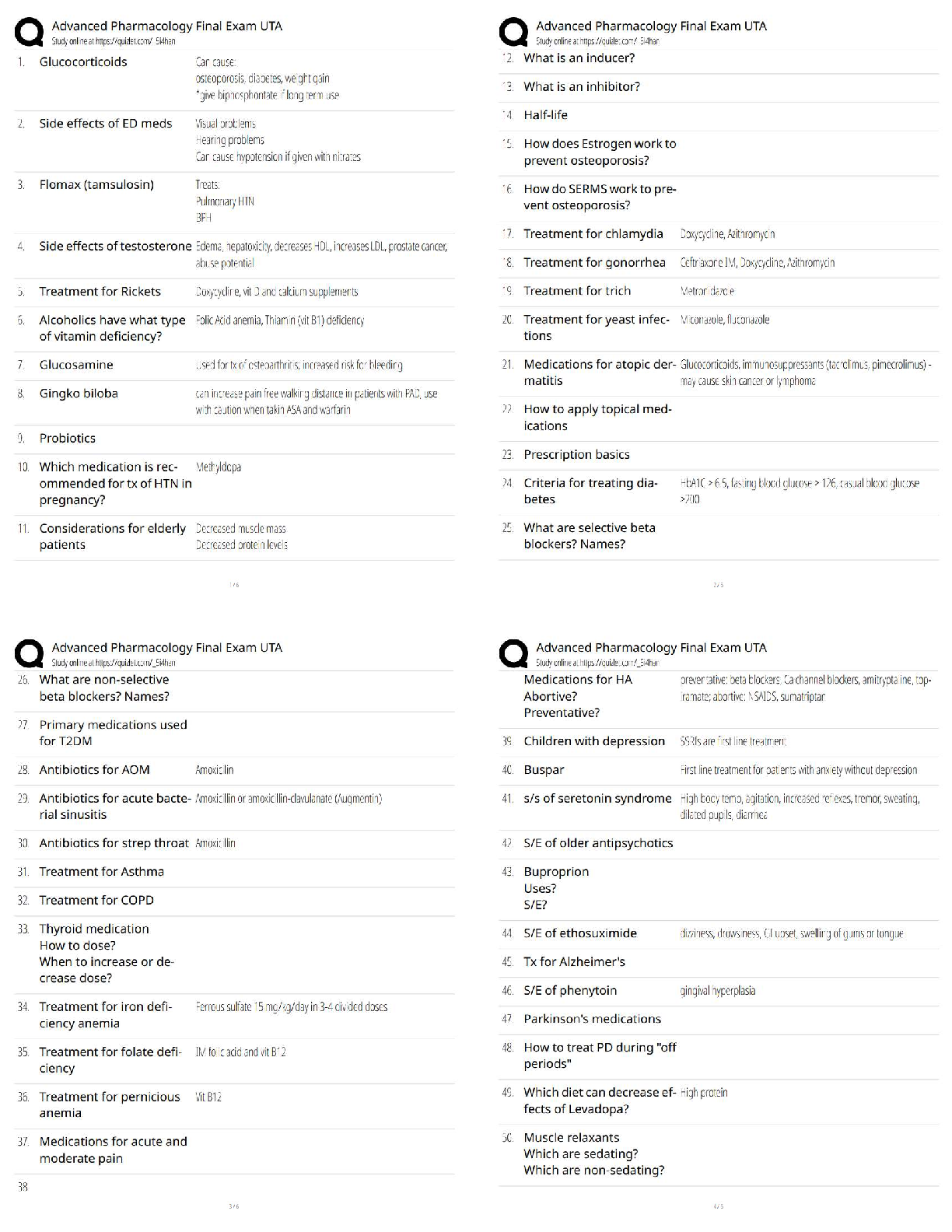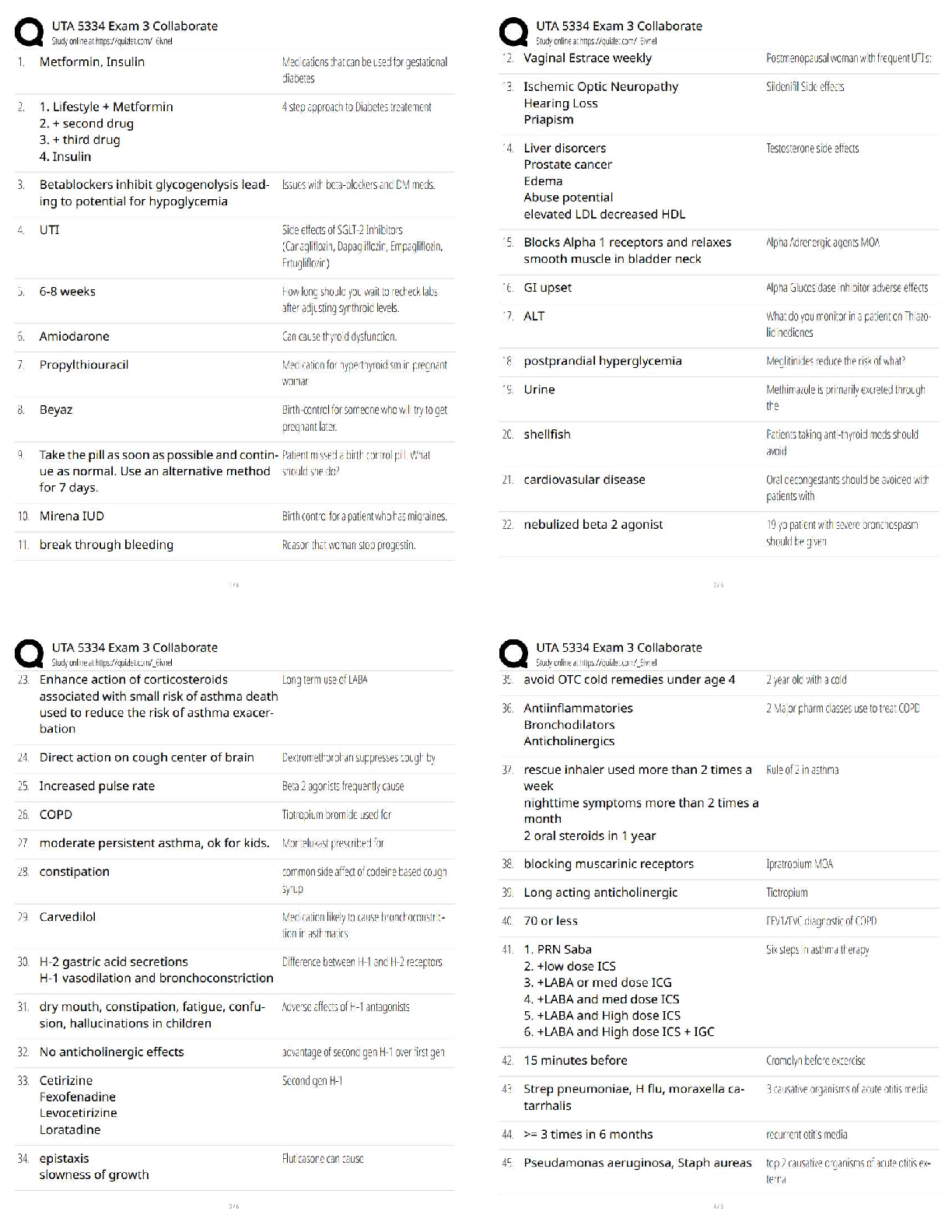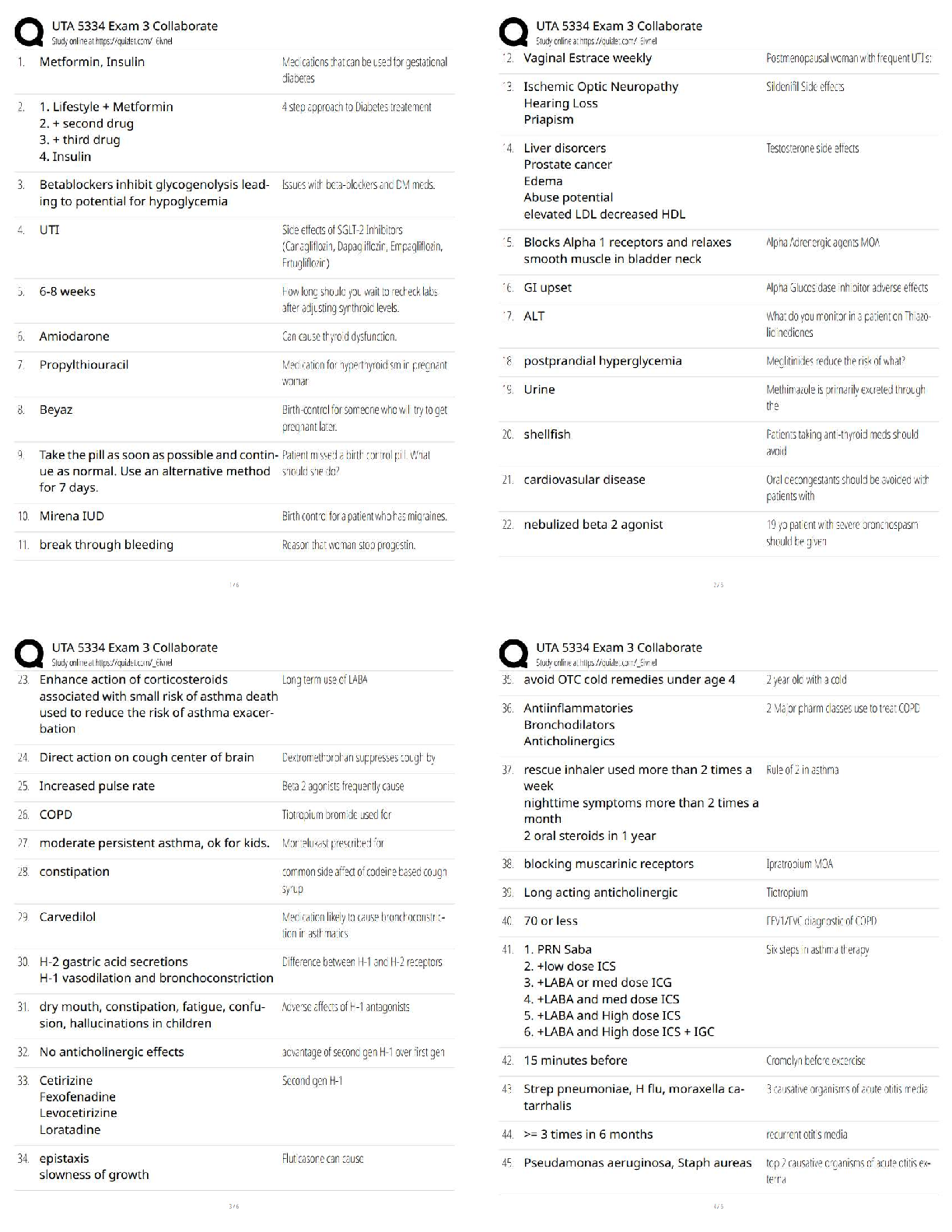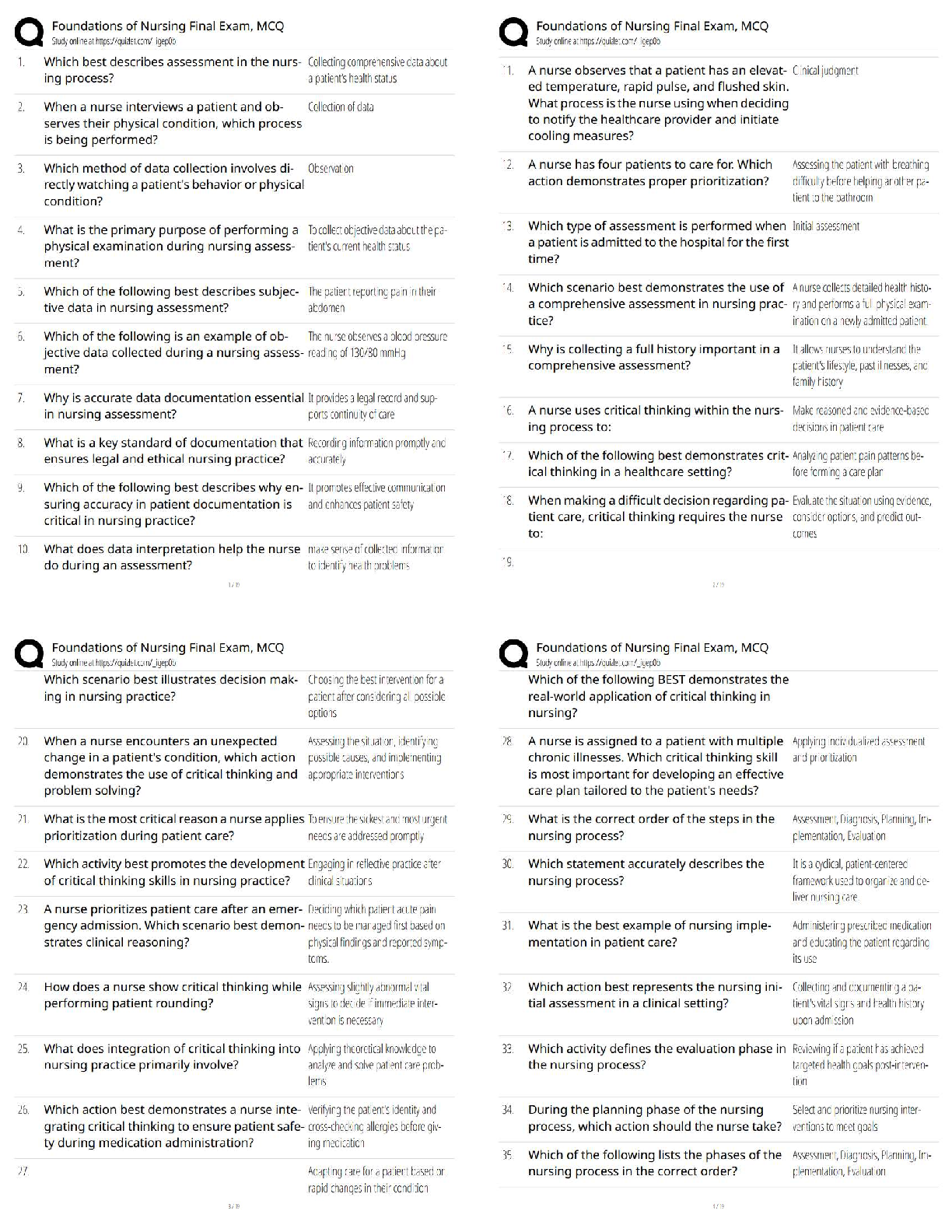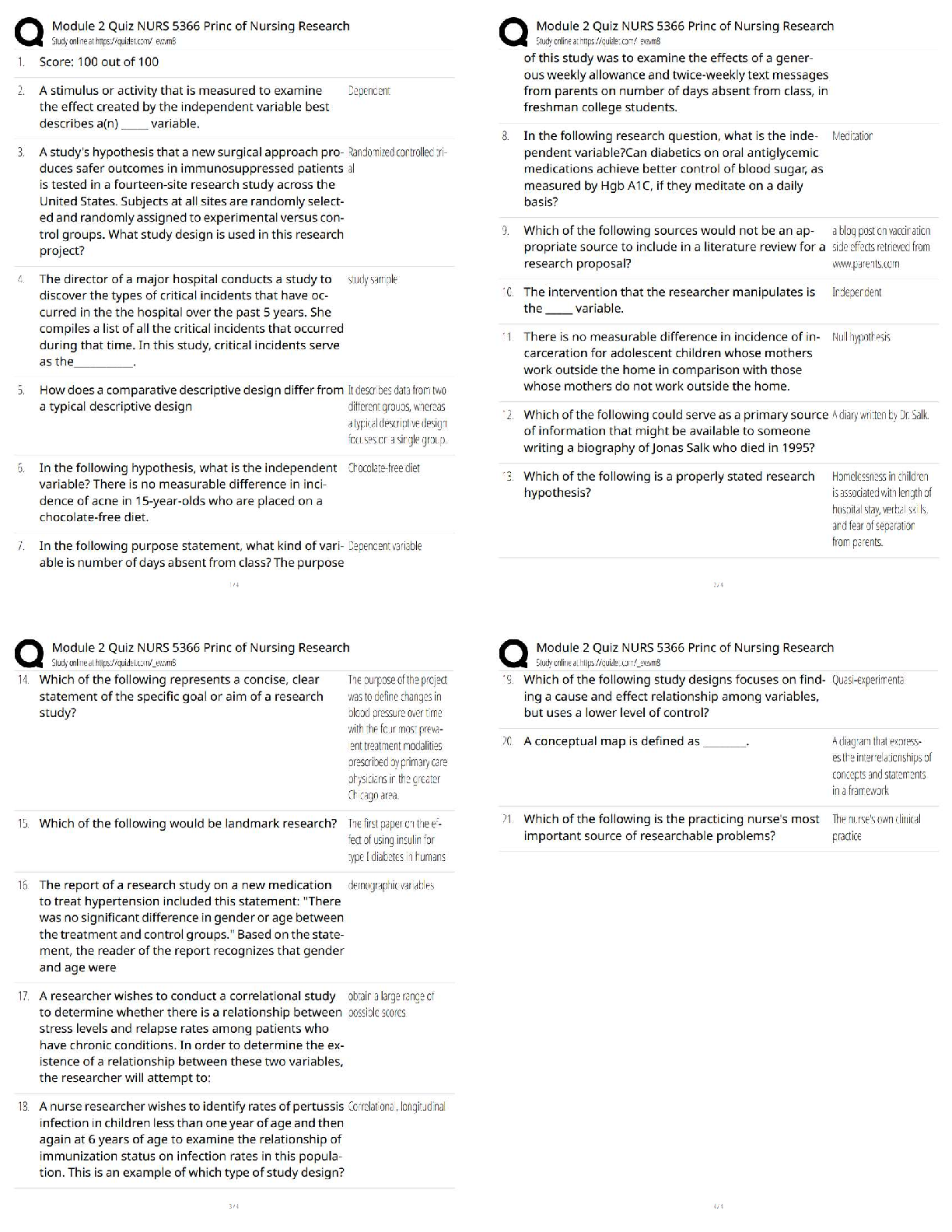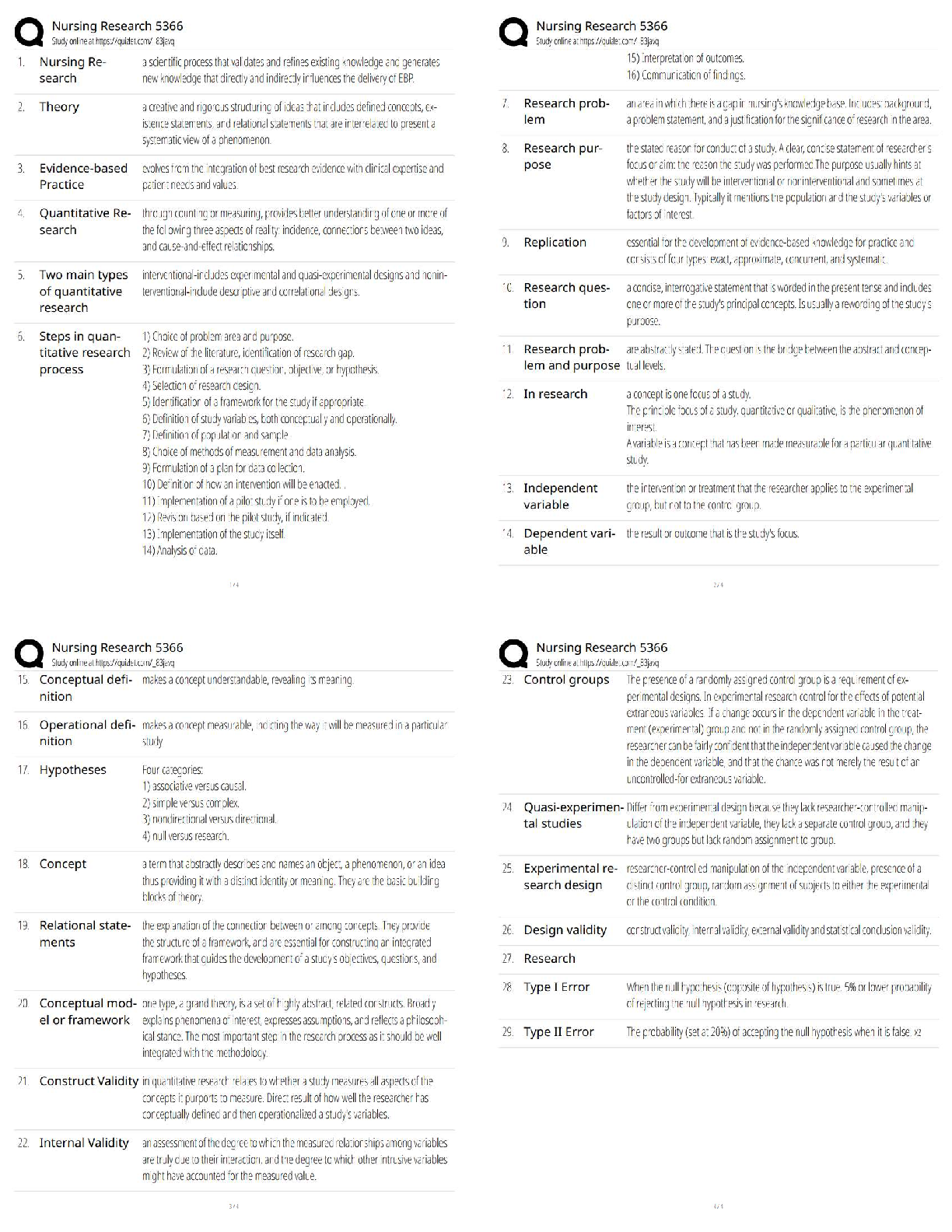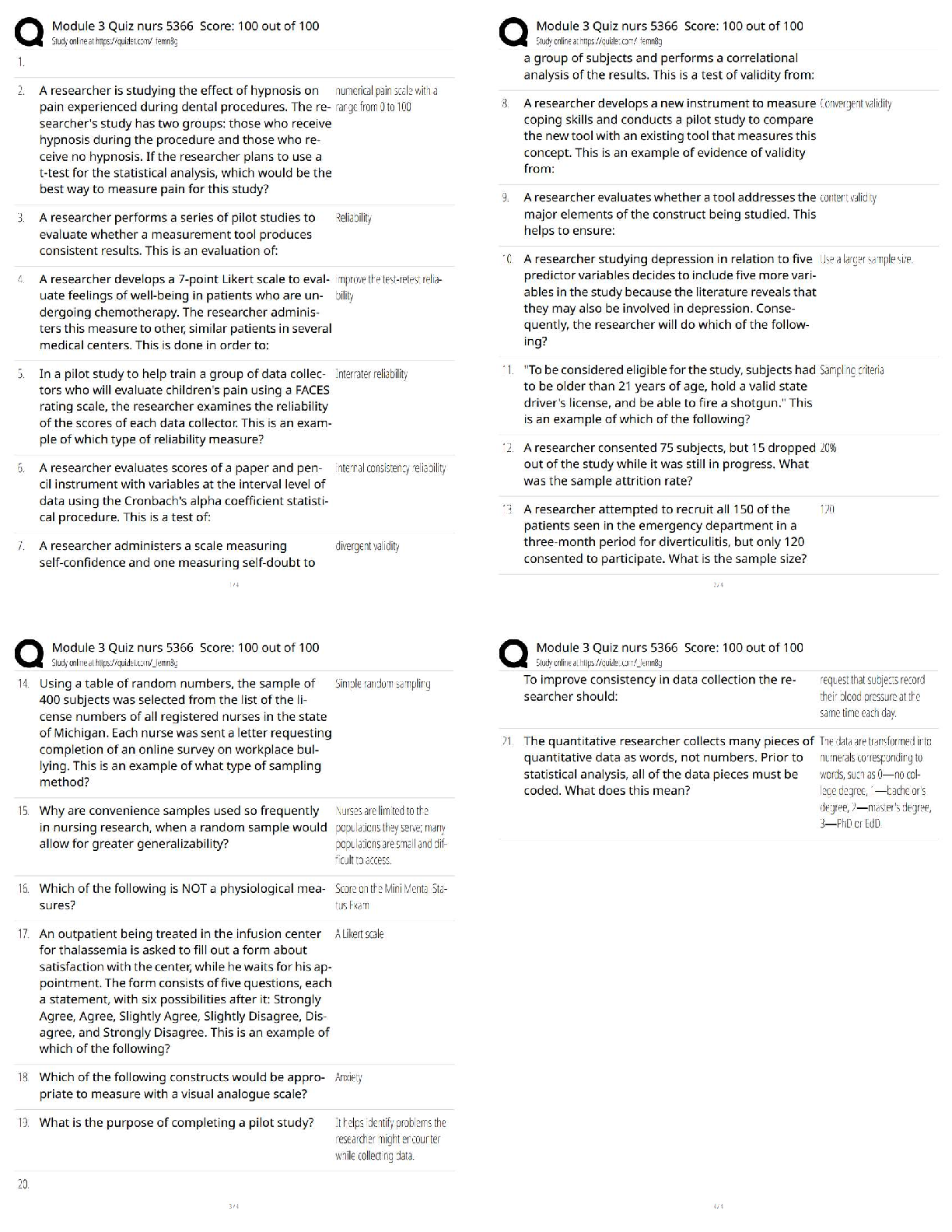Chapter 6: Assessing Mental Status and Substance Abuse
Which of the following are cues that a person may have dementia? Select all that apply. ans: Disorientation
Looking to a family member to answer questions direc
...
Chapter 6: Assessing Mental Status and Substance Abuse
Which of the following are cues that a person may have dementia? Select all that apply. ans: Disorientation
Looking to a family member to answer questions directed to the client
Repeatedly failing to follow instructions
Some cues that the client may have dementia include being disoriented, being a "poor historian," deferring to relatives to answer questions directed to the client, repeatedly and apparently unintentionally failing to follow instructions, having difficulty finding the right words or using inappropriate or incomprehensible words, and having difficulty following conversations.
After assessing a patient, the nurse noted the following: he was tearful, he tried to kill himself before coming into the hospital, he had no immediate plan for another suicide attempt, he was unable to concentrate, and he reported having trouble sleeping and having little or no appetite. The nurse also noted that the patient's appearance was unkempt, that he spoke in a low monotone, and that he was unable to establish and maintain eye contact. Based on this information, which nursing diagnoses would be the most appropriate? ans: Risk for Suicide
When a nurse asks a patient "Do you have any thoughts of wanting to harm or kill yourself?" for what is the nurse assessing? ans: Suicide ideation
ideation: formation of ideas
A 23-year-old ticket agent is brought in by her husband because he is concerned about her recent behavior. He states that for the last 2 weeks she has been completely out of control. She hasn't showered in days, stays awake most of the night cleaning their apartment, and has run up more than $5,000 on their credit cards. While he is talking the client interrupts him frequently, declares this is all untrue, and says she has never been so happy and fulfilled in her whole life. She speaks very quickly, changing the subject often. After a longer than normal interview, the nurse learns that the client has had no recent illnesses or injuries. Her past medical history is unremarkable. Both her parents are healthy, but the husband has heard rumours about an aunt with similar symptoms. The client and her husband have no children. She smokes one pack of cigarettes a day (although she has been chain smoking in the last 2 weeks), drinks four to six times a week, and smokes marijuana occasionally. She is very loud and outspoken. Physical examination findings are unremarkable. Which mood disorder does she most likely have? ans: Manic episode
Mania consists of a persistently elevated mood for at least 1 week with symptoms such as inflated self-esteem, decreased need for sleep, pressured speech, racing thoughts, and involvement in high-risk activities (e.g., drug use, spending sprees, indiscriminate sexual activity). In this case, the client has racing thoughts and pressured speech, a decreased need for sleep, and engagement in high-risk activities (spending sprees).
A 19-year-old college student, Todd, comes to the clinic with his mother, who is concerned that there is something seriously wrong with him. She states that for the past 6 months, her son's behaviour has become peculiar, and that he has flunked out of college. Todd denies any recent illness or injuries. His past medical history is remarkable only for a broken foot. His parents are healthy. He has a paternal uncle who had similar symptoms in college. The client admits to smoking cigarettes and drinking alcohol. He also admits to marijuana use but not in the last week. He denies use of any other substances and feelings of depression or anxiety. The nurse does a complete physical examination, which is essentially normal. When the nurse questions the client about how he is feeling, he says that he is worried that his software for creating a better browser has been stolen. He says that he has seen a black van in his neighbourhood at night, and he is sure that it is full of computer programmers stealing his work through special gamma waves. The nurse asks why Todd believes they are trying to steal his programs. He replies that the programmers have been telepathing their intents directly into his head. He says he hears these conversations at night, so he knows this is happening. What psychotic disorder is most consistent with Todd's history and physical examination findings? ans: Schizophrenia
Onset of schizophrenia generally happens in the late teens to early 20s. It often is seen in other family members. Symptoms must be present for at least 6 months and must have at least two features of (1) delusions (thieves are stealing his programs), (2) hallucinations (technicians sending telepathic signals), (3) disorganized speech, (4) disorganized behavior, and (5) negative symptoms such as a flat affect.
Flat affect: A severe reduction in emotional expressiveness.
When assessing the client's ability to make sound judgments, what question should the nurse ask? ans: "How do you plan to pay rent if you lose your job?"
The nurse can usually assess judgment by noting the client's responses to family situations, jobs, use of money, and interpersonal conflicts. Asking if the client eats breakfast or can manage money are simple yes/no questions that are less likely to reveal data than asking for the client's plan of action in a hypothetical situation such as job loss.
A 22-year-old man is brought to the office by his father. The client was diagnosed with schizophrenia 6 months ago and has been taking medication since. The father states that his son's dose isn't high enough and needs to be increased. He states that his son has been hearing things that don't exist. The nurse asks the young man what is going on. He says that his father is just jealous because his sister only talks to him. His father turns to him and says, "Son, you know your sister died 2 years ago!" His son replies "Well, she still talks to me in my head all the time!" Which best describes this client's abnormality of perception? ans: Hallucination
A hallucination is a subjective sensory perception without real external stimuli. The client can hear, see, smell, taste, or feel something that does not exist in reality. In this case, his sister has passed away and cannot be speaking to him, although in his mind he can hear her. This is an example of an auditory hallucination, but hallucinations can occur with any of the five senses.
When observing a patient diagnosed with mania, the nurse observes his mood to be elated. Another term for this type of mood includes which of the following? ans: Euphoric
Terms used to describe mood include euthymic (normal), euphoric (elated), labile (changeable), and dysphoric (depressed, disquieted, restless).
The nurse is completing a mental health assessment. When the nurse asks the patient to interpret a proverb, the nurse is assessing which of the following? ans: Abstract reasoning
A nurse wants to assess a client's orientation. The nurse recognizes that which orientation is usually lost first when the client is confused? ans: Time
Orientation to time is usually lost first and orientation to person is lost last. Place is in the middle. Location is the same as place.
When does the nurse screen for alcohol and drug use? ans: Every patient/every patient history
The nurse documents findings from the client's Mini-Mental State Examination. The following information will be documented as a result of this test. ans: Orientation, memory, and cognitive function.
The CAGE assessment is used by the nurse to determine if further assessment is needed. The nurse may assess that it is highly likely the client has a problem and would seek additional assessments if the client ans: answered "yes" to three of the four CAGE questions
The CAGE assessment is a quick questionnaire used to determine if an alcohol assessment is needed. If two or more of these questions is answered yes, then further assessment is advised.
While conducting an assessment the nurse suspects that a client is making up things in response to specific questions. What behavior is this client demonstrating? ans: confabulation
Confabulation is the fabrication of facts or events in response to questions in order to fill in the gaps from impaired memory. Derailment is tangential speech with shifting topics that are loosely connected or unrelated. Perseveration is persistent repetition of words or ideas. Flight of ideas is an almost continuous flow of accelerated speech with abrupt changes from one topic to the next.
A client demonstrates nervousness and fear with a worsening loss of memory. Which nursing diagnosis should the nurse select to help guide this client's care? ans: Anxiety related to awareness of increasing memory loss
Which question asked by the nurse assesses judgment of the patient? ans: "What will you do if you feel the need to use cocaine again?"
questions such as "What will you do if you feel the need to use cocaine again?" assess the individual's judgment and ability to solve problems. An aspect of orientation is assessed by asking the individual where they are. Asking what the individual had for breakfast assesses short-term memory, whereas asking about relationships with siblings assesses long-term memory.
The nurse is admitting a client to the unit for surgery the next morning. The nurse notes that the client speaks at an accelerated pace and jumps from topic to topic, none of which progresses to sensible conversation. What would the nurse document about this patient? ans: Patient demonstrates flight of ideas
Flight of ideas is an almost continuous flow of accelerated speech in which a person changes abruptly from topic to topic.
Which assessment notation describes a client's level of consciousness? ans: "Client was alert and cooperative during the assessment."
Alertness or state of awareness of the environment is associated with level of consciousness
[Show More]
